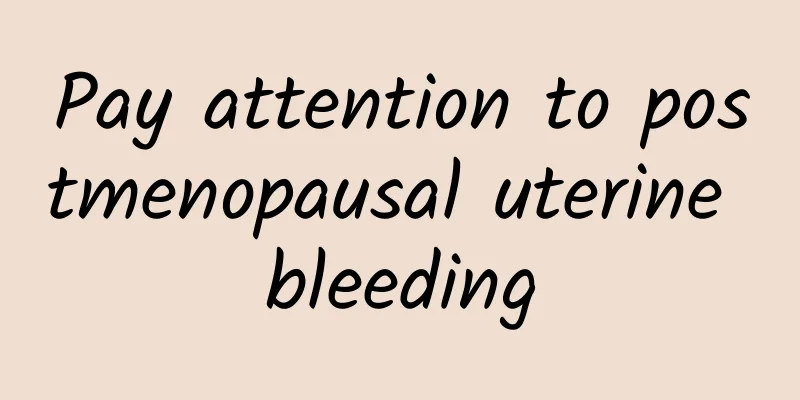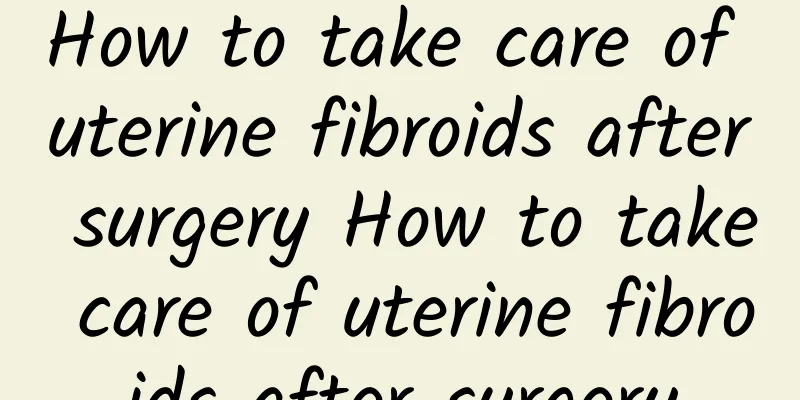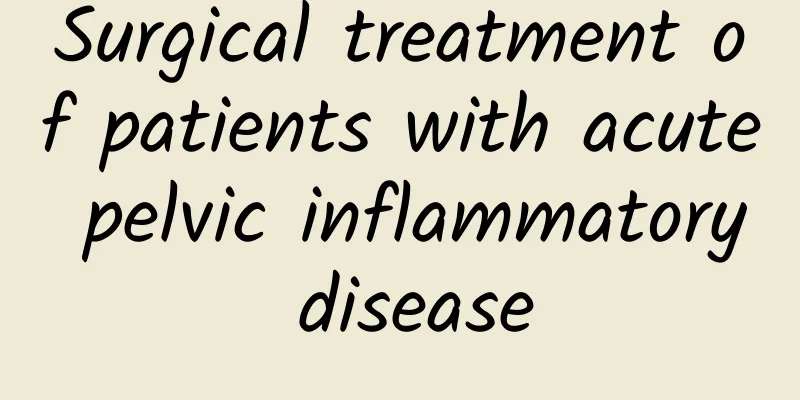How long after a painless abortion can I go out?

|
After a painless abortion, you will generally be observed for two hours after the operation. If there are no abnormalities, you can go home and rest. 1. Postoperative observation and going home: After a painless abortion, doctors usually recommend that you stay in the hospital for two hours for observation. During this period, you will mainly observe the vaginal bleeding and the degree of abdominal pain. If everything is normal and there are no abnormalities, such as heavy bleeding or severe abdominal pain, you can go home and rest. 2. Prevent colds and flu: After surgery, the body is weaker and the immunity is also reduced, making it easy to catch a cold. Therefore, you should keep warm when going out to avoid catching a cold. Especially in cold seasons, you must wear warm clothes when going out. 3. Rest time after surgery: Although you can go out, you need at least two weeks of rest after surgery. During this period, try to avoid physical labor and strenuous exercise to give your body a chance to recover. 4. Precautions for sexual life: Avoid sexual life within one month after surgery. During this period, the uterus and vagina are still recovering, and sexual life may increase the risk of infection and affect the body's recovery. 5. Keep the vulva clean: Wash the vulva with clean water every day and keep it clean and dry. Change sanitary pads and underwear frequently to avoid bacterial growth and reduce the possibility of infection. 6. Observe your physical condition: If you experience fever, abdominal pain, or vaginal discharge with an odor after surgery, you should seek medical attention immediately. These symptoms may be signs of infection and require professional treatment by a doctor. 7. Monitoring of vaginal bleeding: Vaginal bleeding after surgery generally lasts for a few days, but if it lasts for more than 7 days, or the amount of bleeding exceeds the usual menstrual volume, you should go to the hospital for a check-up in time. This may be a sign of poor uterine recovery or other problems. 8. Psychological adjustment: Painless abortion will have certain effects on both the body and the mind. After the operation, you should pay attention to regulating your emotions and avoid excessive anxiety and stress. If you feel depressed, you can talk to friends or family members and seek professional psychological counseling if necessary. The above suggestions can help you better understand the precautions after painless abortion and ensure that your body can recover smoothly. Remember, although you can go out after surgery, you must also pay attention to details in all aspects to ensure your health. |
<<: Seven early signs of ectopic pregnancy
>>: Is there any relationship between uterine fibroids and frequent anger?
Recommend
Will using electric knife to treat cervical erosion affect fertility?
Will using electric knife to treat cervical erosi...
Experts introduce self-examination methods for uterine fibroids
In recent years, as more and more female friends ...
Threatened abortion care routine
Routine care for threatened abortion. Many pregna...
The commonly used treatment for pelvic inflammatory disease is ointment therapy
As pelvic inflammatory disease becomes more and m...
Experts guide the correct use of drugs for hyperprolactinemia
The disease of hyperprolactinemia has existed in ...
What causes dysmenorrhea?
Many women will experience dysmenorrhea in their ...
What are the clinical symptoms of uterine fibroids? What are the methods for diagnosing uterine fibroids?
The rate of malignant transformation (i.e. sarcom...
Why is it said that thick endometrium is prone to recurrence?
When it comes to understanding the causes of endo...
What are the causes of irregular menstruation?
Irregular menstruation refers to abnormalities in...
Let's take stock of the major hazards of irregular menstruation in women
Irregular menstruation is a common disease among ...
What to eat for women after menopause
During menopause, you need to pay attention to so...
How to treat uterine fibroids? Diet therapy for uterine fibroids
Uterine fibroids are the most common benign tumor...
Love tea eggs for breakfast? PK poached egg, stewed egg, which one has the highest calorie...
There are many choices of egg dishes for breakfas...
What can I eat after radiotherapy for uterine fibroids? What does radiotherapy for uterine fibroids mean?
What can I eat after radiotherapy for uterine fib...
What causes pelvic inflammatory disease?
The causes of pelvic inflammation are generally v...









